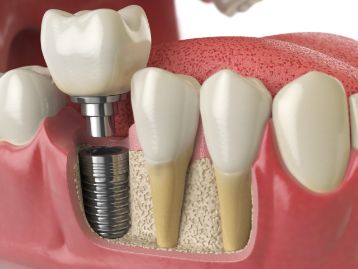
When you make an investment, it goes without saying that you want it to pay off. Without question, dental implants in Carlisle are one investment that do just that! They look, feel and function more like your own teeth than anything else and offer countless benefits that you just can’t get from traditional bridges and dentures. But one common question dentists often hear is, “How long will my dental implants last?” Keep reading below to learn the answer and get valuable tips for helping your implants last as long as possible.
The Lifespan of Dental Implants
Dental implants are fairly unique because, while other types of dental work need to be replaced eventually, implants can last 30 years or more. In fact, they’re considered a permanent solution to tooth loss because they can last a lifetime when patients care for them properly.
With that said, keep in mind that an implant itself is simply a titanium post that takes the place of a missing tooth root. While the implant can last a lifetime, the implant restoration (either a single dental crown, bridge, or denture) generally needs to be replaced after 10-20 years of wear-and-tear.
Tips For Maintaining Your Dental Implant
Caring for your dental implant is fairly straightforward and very similar to caring for your natural teeth:
- Maintain good oral hygiene – Good brushing and flossing are essential. While your implant can’t get a cavity, it can fail if it doesn’t have healthy gum tissue surrounding it. Brush at least twice a day and floss once. Some people benefit from an electric toothbrush and an oral irrigator.
- Quit smoking – The long-term success rate for implants drops to 85% in smokers, compared to over 95% in non-smokers.
- If necessary, wear a nightguard – Clenching and grinding can cause your implants to become loose. A custom-made nightguard will protect your implants and prevent this from happening.
- Schedule routine dental care – Regular checkups are very important to catch any potential problems early on.
When it comes to having a healthy smile after tooth loss, dental implants are one of the best decisions you’ll ever make. And, with these guidelines, you’ll enjoy all the benefits they have to offer for a lifetime.
About the Author
Dr. Thomas Neslund has been a dentist for nearly 30 years and is a graduate of the University of Pittsburgh School of Dental Medicine. He provides outstanding implant dentistry from start to finish and has restored the smiles of countless patients after tooth loss. If you’d like to know more about maintaining dental implants or have any questions, you can reach Dr. Neslund via his website.
